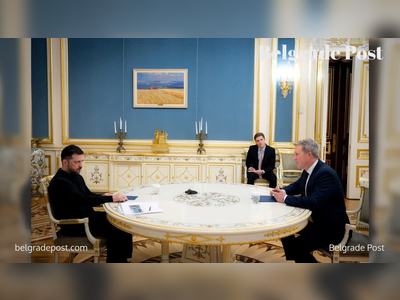New Spending Minimums in Restaurants Spark Controversy Across Europe
As the restaurant industry adapts post-pandemic, some venues impose minimum spend rules, while others adopt automatic tipping practices.
In recent months, a notable trend has emerged in the European restaurant sector, whereby establishments are introducing minimum spending requirements for patrons.
This shift comes in the wake of the COVID-19 pandemic, which resulted in widespread closures and a significant reduction in workforce capacity within the hospitality industry.
As venues reopened, many faced a labor shortage that compelled them to increase wages in order to attract remaining staff.
Concurrently, the rising costs of labor, utilities, and food supplies have led owners to reconsider their business models.
An incident reported by a customer in an Italian restaurant in Salzburg exemplifies this trend, where a sign at the entrance stipulated that entry was permitted only if diners planned to spend a minimum of €20 per person.
According to the customer, after being informed of this requirement by a waiting staff member, they opted to comply despite their initial reluctance.
Following their order of a pizza and a soft drink, they were informed that additional items, including dessert and coffee, were necessary to meet the stipulated minimum spend, ultimately resulting in a bill of €53.
While such practices are uncommon in Croatia, there are anecdotal accounts of waitstaff informing diners of minimum spending policies, particularly in upscale restaurants where it is challenging to keep expenses below €100 per patron.
In France, the situation has escalated with some restaurants on the Côte d'Azur automatically adding a 15% service charge to bills.
In addition, diners are frequently encouraged to leave even larger tips, akin to those customarily given in the United States.
This practice has garnered criticism from local authorities; in Saint-Tropez, some restaurant staff compiled a list of establishments reputed for receiving the highest tips, which was denounced by the mayor as a form of exploitation.
The mayor emphasized that gratuity should be a voluntary expression of gratitude rather than an imposed requirement.
An anonymous restaurateur from the French Riviera noted the financial habits of British tourists, stating that they tend to spend significantly more than other visitors, while diners with limited budgets should be made aware of the potential for higher costs.
This perspective echoes sentiments prevalent in nightlife venues, where consumers ordering expensive drinks are often given preferential treatment over those who stay for extended periods with less expensive options.
This shift comes in the wake of the COVID-19 pandemic, which resulted in widespread closures and a significant reduction in workforce capacity within the hospitality industry.
As venues reopened, many faced a labor shortage that compelled them to increase wages in order to attract remaining staff.
Concurrently, the rising costs of labor, utilities, and food supplies have led owners to reconsider their business models.
An incident reported by a customer in an Italian restaurant in Salzburg exemplifies this trend, where a sign at the entrance stipulated that entry was permitted only if diners planned to spend a minimum of €20 per person.
According to the customer, after being informed of this requirement by a waiting staff member, they opted to comply despite their initial reluctance.
Following their order of a pizza and a soft drink, they were informed that additional items, including dessert and coffee, were necessary to meet the stipulated minimum spend, ultimately resulting in a bill of €53.
While such practices are uncommon in Croatia, there are anecdotal accounts of waitstaff informing diners of minimum spending policies, particularly in upscale restaurants where it is challenging to keep expenses below €100 per patron.
In France, the situation has escalated with some restaurants on the Côte d'Azur automatically adding a 15% service charge to bills.
In addition, diners are frequently encouraged to leave even larger tips, akin to those customarily given in the United States.
This practice has garnered criticism from local authorities; in Saint-Tropez, some restaurant staff compiled a list of establishments reputed for receiving the highest tips, which was denounced by the mayor as a form of exploitation.
The mayor emphasized that gratuity should be a voluntary expression of gratitude rather than an imposed requirement.
An anonymous restaurateur from the French Riviera noted the financial habits of British tourists, stating that they tend to spend significantly more than other visitors, while diners with limited budgets should be made aware of the potential for higher costs.
This perspective echoes sentiments prevalent in nightlife venues, where consumers ordering expensive drinks are often given preferential treatment over those who stay for extended periods with less expensive options.
AI Disclaimer: An advanced artificial intelligence (AI) system generated the content of this page on its own. This innovative technology conducts extensive research from a variety of reliable sources, performs rigorous fact-checking and verification, cleans up and balances biased or manipulated content, and presents a minimal factual summary that is just enough yet essential for you to function as an informed and educated citizen. Please keep in mind, however, that this system is an evolving technology, and as a result, the article may contain accidental inaccuracies or errors. We urge you to help us improve our site by reporting any inaccuracies you find using the "Contact Us" link at the bottom of this page. Your helpful feedback helps us improve our system and deliver more precise content. When you find an article of interest here, please look for the full and extensive coverage of this topic in traditional news sources, as they are written by professional journalists that we try to support, not replace. We appreciate your understanding and assistance.










